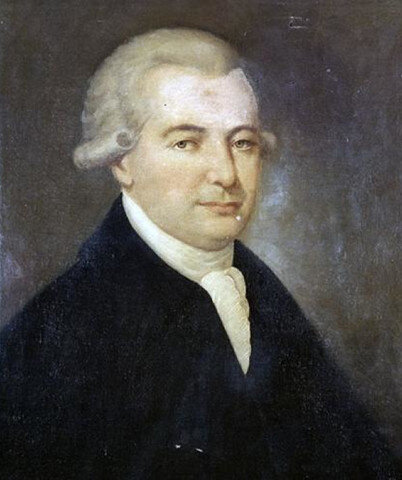
George Walton
Georgia
America possesses a long-held cultural tradition of initiative, of gumption. Its people believe anything is possible and the only obstacle to achievement is quitting. Of course, this tradition dates back to the colonists and their belief in liberty, its utmost value, and the necessary fight for it.
George Walton is one such example of America’s enterprising DNA.
Mr. Walton was born in Prince Edward County, Virginia. The year of his birth is circa 1741 as noted by biographer, Della Gray Barthelmas. His parents were not people of means and both died around the time he was 12 years of age. He, then, went to live his uncle under whom he apprenticed in carpentry. Young Walton thirsted for knowledge, but his uncle was less fond of learning, even to the point of denying him a candle at night in order to read. He was determined in his quest for knowledge and collected wood to burn for light in the evenings. His zeal and perseverance won his uncle over.
In 1769, Georgia was burgeoning. Unique to the colonies, policies were implemented that prohibited slavery, large land grants, and rum. This encouraged each man to work his own land and provided an opportunity for all to have input in the development of the colony established by England. Perhaps, this attracted George Walton to move to Savannah. At age 28, he read law under the guidance of Henry Young, a local barrister, and was accepted to the bar five years later in 1774. He also achieved the degree of Master Mason in the Freemasons. This indicates his reputation rose to a level of high respect in the community. He also became acquainted with other patriots such as Lyman Hall, a fellow signer of the Declaration.
George Walton and others began to recognize their constitutional rights as Englishmen were being undermined by the Stamp and Sugar Acts. They gathered around a liberty pole erected at Tondee’s Tavern to discuss the political tensions rising between England and the colonies. In time, various parishes of the province were invited to gather regarding the need to secure their liberty and the Georgia provincial Congress was formed. This was not emblematic of sentiment colony-wide. They were still many who remained loyal to the crown. Therefore, Georgia did not send any delegates to the First Continental Congress.
After much spadework, the Georgia Assembly joined the patriot cause and sent delegates to Philadelphia to serve in the Second Continental Congress. The action did not sit well with the royal governor who threatened to use military force against the assembly. The threat was ignored and a new government was established and Archibald Bulloch was its first governor. In Philadelphia, George Walton worked earnestly to get Richard Henry Lee’s resolution for independence passed. He and his colleagues’ efforts were rewarded when it was approved on July 2nd. He continued to serve the people of Georgia in Philadelphia into the latter part of 1778. Mr. Walton was instrumental in ensuring the Congress’s business continued despite being displaced due to the attack on Philadelphia.
In December, George Walton was granted a colonel’s commission in the state militia. In a battle involving defending Savannah, he was wounded in the thigh and fell off his horse. He was captured by the British and held for about ten months before being released in October 1779. Later in the month, he chosen to be governor, but resigned after two months. Ten years later, Mr. Walton was again chosen to be governor and led the effort to set up the state government in Augusta. He also had a hand in developing the layout for Augusta, which mirrored that of Savannah.
Overall, George Walton contributed much of his life to public service in Georgia. His later years included serving as the chief justice of the state from 1783-89. The last two positions which he held were as a Superior Court judge and a United States senator from 1795-96. He died on February 2, 1804.

